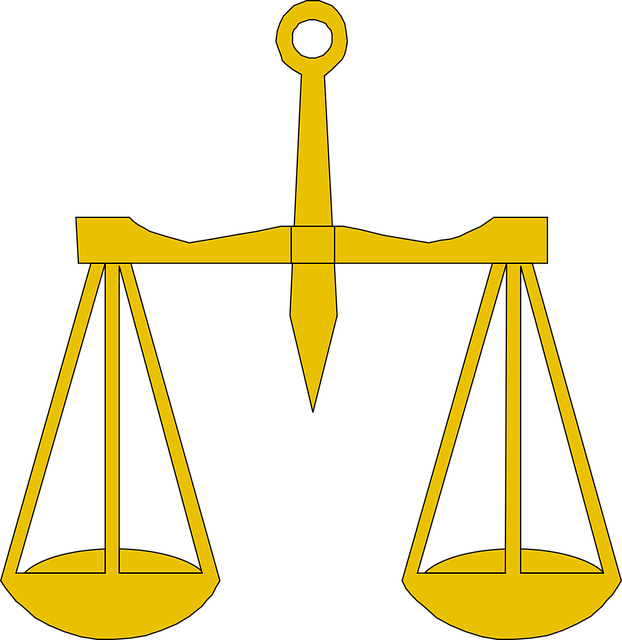Antitrust laws protect fair competition and consumers by setting guidelines on pricing, market segmentation, and mergers & acquisitions. The Legal Standards for Burden of Proof are crucial in antitrust litigation, where plaintiffs must initially show a violation, shifting the burden to defendants to prove legal compliance. Understanding these standards is vital for both plaintiffs seeking redress and defense attorneys advocating for clients in complex white-collar cases. A successful defense strategy involves gathering detailed records, conducting thorough investigations, identifying misrepresentations, and showcasing actions within legal boundaries, potentially leading to the complete dismissal of charges.
Antitrust violation cases scrutinize business practices, ensuring fair competition and preventing market dominance. Understanding these legal standards is crucial for businesses to avoid potential pitfalls. This article delves into the core principles governing antitrust laws, defining unfair practices, and exploring the significant role of the burden of proof in such cases. By examining these aspects, we equip businesses with strategies to navigate complex legal landscapes, especially when facing accusations, ensuring compliance with evolving legal standards.
- Understanding Antitrust Laws and Their Purpose
- Defining an Unfair Antitrust Practice
- The Role of Burden of Proof in Antitrust Violation Cases
- Strategies for Businesses Accused of Antitrust Violations
Understanding Antitrust Laws and Their Purpose

Antitrust laws are designed to foster fair competition and protect consumers from anti-competitive practices. These laws set legal standards for businesses, establishing rules on pricing, market division, and mergers & acquisitions. The primary purpose is to maintain a competitive marketplace, ensuring no single entity dominates an industry. Understanding these regulations is crucial in navigating high-stakes cases.
The Legal Standards for Burden of Proof play a pivotal role in antitrust litigation. In many jurisdictions, plaintiffs bear the initial burden of presenting evidence suggesting a violation. However, once this threshold is met, the onus shifts to the defense to prove their actions were legal and compliant with market competition principles. Winning challenging defense verdicts often hinges on demonstrating that business decisions are not anti-competitive by nature, thereby avoiding indictment for antitrust violations.
Defining an Unfair Antitrust Practice

Antitrust violations occur when businesses engage in practices that restrict competition or distort market forces. To define an unfair antitrust practice, legal standards for burden of proof play a pivotal role. In civil cases, the plaintiff typically bears the burden of demonstrating, by a preponderance of evidence, that the defendant has indeed violated antitrust laws. This involves showing that the business’s actions significantly harmed competition and consumers, often through exclusive deals, price-fixing, or market division.
Understanding these legal standards is crucial for both plaintiffs seeking redress and white collar defense attorneys advocating on behalf of their clients. In complex cases involving white collar and economic crimes, jury trials may be employed to resolve disputes. These trials offer a platform for presenting evidence, examining witnesses, and ultimately determining whether the defendant’s actions meet the criteria for antitrust violations, ensuring fair and just outcomes under the law.
The Role of Burden of Proof in Antitrust Violation Cases

In antitrust violation cases, establishing guilt or liability lies at the heart of legal proceedings, and this is heavily influenced by the legal standard for the burden of proof. The burden of proof requires that the plaintiff presents compelling evidence to convince a judge or jury beyond a reasonable doubt that an antitrust law has been infringed upon. This standard is crucial as it sets the bar for winning challenging defense verdicts. A successful prosecution must demonstrate that the alleged anticompetitive conduct was deliberate and caused significant harm to market competition, ultimately leading to lower consumer prices and more choices.
The complexity of antitrust laws and their unique application in various industries demands a meticulous approach. An experienced attorney’s role is pivotal here; they guide clients through this intricate landscape, leveraging an unprecedented track record to navigate the legal standards for burden of proof successfully. By presenting robust arguments and evidence, defense attorneys can ensure that their clients’ rights are protected and that justice is served in these high-stakes cases.
Strategies for Businesses Accused of Antitrust Violations

When businesses face accusations of antitrust violations, navigating the legal landscape becomes a complex challenge. The key to success often lies in employing robust defense strategies that counter the allegations and demonstrate compliance with legal standards. One crucial aspect is understanding the burden of proof; it’s not just about refuting claims but presenting compelling evidence to support their position.
A comprehensive approach may involve gathering detailed records, conducting thorough investigations, and identifying any potential loopholes or misrepresentations in the plaintiff’s case. Achieving extraordinary results can be as simple as demonstrating that their actions were within legal boundaries, even if they involved competitive behaviors. Across the country, numerous cases have highlighted the importance of a well-crafted defense, leading to complete dismissals of all charges for businesses able to prove their innocence under the prevailing legal standards.
Antitrust violation cases are complex legal battles that demand a deep understanding of both competition laws and the unique circumstances of each case. By examining the legal standards for burden of proof, businesses facing accusations can better navigate these proceedings, employing effective strategies to protect their interests. Ultimately, adhering to fair market practices and transparent communication is key to avoiding potential antitrust issues, ensuring long-term success in an ever-evolving business landscape.






